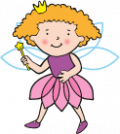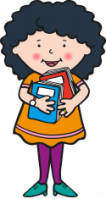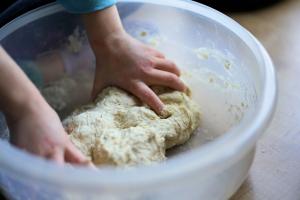Activities for Teaching Writing Genres in KS1 & 2
Writing is a skill which is learnt over time.
Starting in the first year of school (and even pre-school), learning how to be a proficient writer takes plenty of practice and patience – often right into adulthood if you truly want to master your craft (Laura Ingalls Wilder, who wrote the classic ‘Little House On The Prairie’, didn’t publish her first book until she was in her sixties!).
Several key components of literacy, however, are most useful when they can be learned early on – handwriting, spelling, grammar and punctuation, for example. Genres, although a little more advanced than the most basic nuts-and-bolts of writing, are also vital to understand if you truly want to make the most of a child’s budding creativity.
Genre is essentially a form of classification – fantasy or nonfiction, for example.
In Key Stage One and Key Stage Two, it’s vital that pupils get to grips with the purpose of texts being written, as well as the audience its intended for.  When properly understood, it’s a great tool for unlocking creative story writing potential – and never more so than when children discover their favourites!
When properly understood, it’s a great tool for unlocking creative story writing potential – and never more so than when children discover their favourites!
Here are 7 engaging activities for teaching KS1 and KS2 writing genres:
1. Visit the Library
Children love having a lesson outside of the classroom and you don’t have to take them far! Your school library presents the perfect opportunity for your class to explore some of the different types of genres (or if you’re feeling brave you can go to your town’s local library, for added excitement), such as fiction, non-fiction, poetry and more, suitable for KS1 and KS2 level.
presents the perfect opportunity for your class to explore some of the different types of genres (or if you’re feeling brave you can go to your town’s local library, for added excitement), such as fiction, non-fiction, poetry and more, suitable for KS1 and KS2 level.
Activity: Choose three different writing genres and create simple paper signs (plays, explanation and narrative are good examples). Place your signs in different areas of the library and ask your class to search for a book which matches one of the genres. When they have found a book ask them to take it to the corresponding sign, where you can look through the book with them and decide if they’ve made a match.
You could start them off with some examples or change the activity so you have already put piles of books next to each sign so they can look through the different genres in small groups. This activity will not only allow the children a change of scenery, but it’s also interactive and practical. Your class will love it – even if your librarian doesn’t!
2. Act it Out
Let’s face it, plays on paper can be a little bland. After all, they’re designed to be seen by an audience, not read during silent reading time. To delight your class, why not choose a very simple script (or write one yourself!) and get your pupils to act it out in the classroom? Move the tables aside and encourage some amateur dramatics! You could then go one step further and divide your class into smaller groups and set a task to write their own scripts.
These scripts could even be acted out by the other groups. This task would provide plenty of opportunity for fun, laughter and collaboration, all while learning about different types of play, and the individual genres that they follow.
3. Making Muffins
Who doesn’t love to bake? Or at least eat the end results?
Instructional writing should include step-by-step instructions to guide you through a process, but this genre really doesn’t need to be formulaic in how its taught. Recipes are an easy-to-access example of instructional writing and this offers a great opportunity for a fun, practical lesson.
Choose a simple recipe that doesn’t have too many steps to guarantee a successful outcome. Once your class have made muffins, flapjacks, fridge cake, rice krispie cakes, chocolate nests (the list of simple recipes is endless) you could ask them to write out the recipe themselves to complete the loop.
4. Dear Diary
When you think of famous diaries our thoughts might go to Anne Frank, or maybe even Adrian Mole! However, your class may be more likely to associate the diary genre with Jeff Kinney’s Diary of a Wimpy Kid, and who could blame them? These books (and films) are funny and relatable.
To encourage your class to embrace the diary genre, you could get them to imagine they have just had the most embarrassing day of their lives and get them write a fictional diary entry all about it. Prizes for the most embarrassing fictional day!
5. Leaflets
Designing an informative leaflet can be included in almost any pre-existing teaching module. From learning about the Ancient Egyptians to the Fire of London, Recycling to Road Safety – creating a leaflet provides an opportunity not only to be creative, but also to recall learned information on a subject, while cementing the writing genre of leaflets.
6. News
Writing a newspaper article for a topic the children are learning about will not only help to embed the information they are learning about but also provide the opportunity to get to grips with the genre of a news story.
get to grips with the genre of a news story.
You could even provide your class with a printed A4 template of a newspaper page which they can fill in with their story. They could draw a picture to support the story, create a catchy newspaper name and even give themselves an alliterative reporter name! And the results would be perfect for a wall display!
7. Integrating KS2 Writing Genres Across Subjects
Genre writing can be incorporated across the curriculum, meaning that learning about writing genres doesn’t have to sit on the shoulders of literacy lessons alone. Writing out how to solve a maths problem or writing up the findings of a science experiment with an introduction, method and conclusion are both examples of how to incorporate genre writing in other subjects.
The key to learning about writing genres, as with anything, is repetition. Frequently exposing your class to different writing genres and texts will help them get to grips with this fundamental component of writing. They will soon be able to switch between writing genres without even thinking about it.
Excited to teach writing genres in a new way? Mighty Writer can help!
Mighty Writer supports children to write in a range of genres, helping them to use the relevant vocabulary and structure text appropriately.
As their understanding develops, so does their ability to write in increasingly complex and mature styles!
Click below to find out more about the impact mighty writer could have in your classroom.

